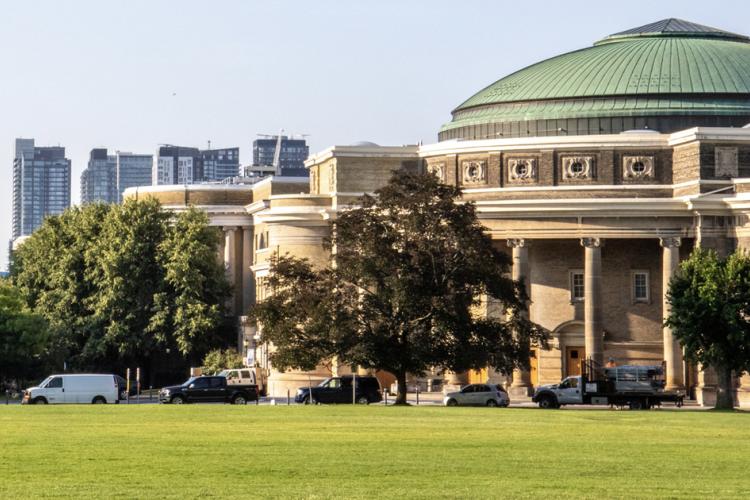Haissi Cui and Maciej Korzyński of the Department of Chemistry are among 51 faculty members across the three U of T campuses who have been recognized with 2023-24 Connaught New Researcher Awards.
According to an article in U of T Celebrates, the annual awards support early-stage researchers in fields like humanities, social sciences, life sciences, physical sciences, and engineering. An aim of the support is to further recipients’ research while enhancing their competitiveness for external awards. Announced in August, they are part of the Connaught Fund. The university’s largest internal university research funding program, it is named for U of T’s internationally renowned Connaught Laboratories, which played an instrumental role in insulin production and diphtheria control in the 1920s, early breakthroughs in an illustrious series of medical achievements.
“The award means a lot to me and my group, especially since it encourages us to continue the study of rare neurological disorders,” said Haissi Cui. "My group and I have met with affected patients and their families, and we are honored to receive support to develop a deeper understanding of RNA processes in human cells and what can happen if they are disrupted.”
The Cui group’s research project is aimed at understanding the molecular consequences of mutations that cause neurodevelopmental disorders in humans.

Human cells are spatially organized, Cui explained, with parts of the cell enriched for specific biomolecules. “Our cell nucleus not only contains our genetic information in the form of DNA, but also the machinery to transcribe DNA into messenger RNA (mRNA), and further process the mRNA so it can be used to guide protein synthesis. This machinery is found in specific cellular compartments, so called “nuclear speckles”, which are organized by specific proteins.
“One of these proteins is the Serine/arginine repetitive matrix protein 2 (SRRM2), which is also involved in mRNA processing. Certain human SRRM2 variants originating from genetic mutations cause neurodevelopmental disorders, which severely affect patients, their families, and society. However, the molecular basis of how these SRRM2 variants cause diseases has not been explored yet.”
The Cui Lab studies disease-causing variants of this gene, exploring how nuclear speckles might be different when SRRM2 is mutated. The work seeks to develop models that can then be used to screen drug-like molecules or other therapeutics to discover treatment options.
“So far, there are no medications available for SRRM2-related disorders and we hope to contribute to understanding the disease better,” Cui said, adding that the group would work closely both with medical doctors and a patient advocacy organization throughout the process.
Korzyński’s research, meanwhile, aims to transform the industrial scale formation of plastics such as polyethylene. He said change will be achieved by introduction of a new class of catalysts based on porous solid-state materials, metal-organic frameworks.
“We can develop designer metal-organic frameworks whose structures are tailored to perfectly suit the job as a catalyst. The catalysts last longer, lead to higher yields of desired products, and generate less waste, with an overall increase in sustainability.”
“It is a great honor to be recognized with the Connaught New Researcher Award. These funds will not only help address critical issues that our society is facing right now, but they will also facilitate the training of a new generation of scientists,” said Korzyński.
The award is named for U of T’s renowned Connaught Laboratories, whose many achievements included their instrumental role in insulin production and diphtheria control in the 1920s, as well as involvement in the global fight to eradicate smallpox
The lab’s track record of innovation and global impact is furthered each year with these new awards to promising researchers across campus. For Professors Cui and Korzyński, they offer a chance to carry that legacy forward, advancing scientific knowledge and delivering tangible benefits to humankind and the world.


